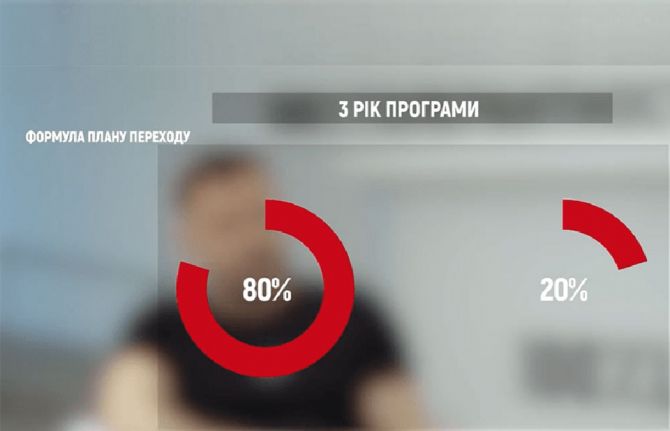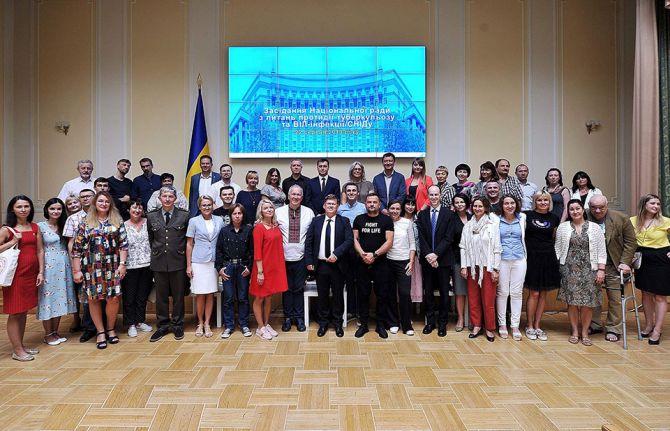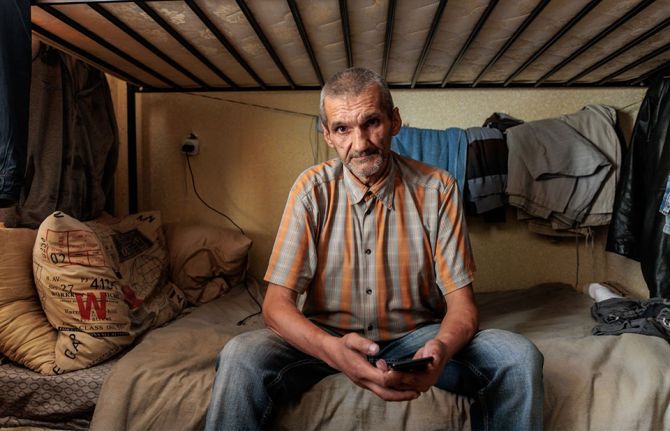



Feature Story
20–50–80 to reach 100 in Ukraine
06 November 2020
06 November 2020 06 November 2020Ukraine has announced that it is now funding 80% of its national HIV response’s HIV prevention, care and support programmes.
Under its 20–50–80 transition plan, which began in 2018, the government committed to increasing its share of the funding of HIV prevention, care and support programmes, which previously were fully funded by international donors, over three years. In the first year of the transition plan, the state was to finance 20% of those programmes, with the Global Fund to Fight AIDS, Tuberculosis and Malaria (Global Fund) providing 80%. In the second year, the ratio was to reach 50/50 and in the third year 80% of funding was to be provided by the state, with 20% from by the Global Fund. This level of funding, which comes from both national and local budgets and is for prevention, care and support programmes within the national HIV and tuberculosis (TB) response and for the procurement of HIV/TB-related services from community organizations, has now been achieved.
The transition plan was proposed by a group of public and community organizations led by 100% Life, formerly called the All-Ukrainian Network of People Living with HIV. Dmytro Sherembey, the Head of the Board of 100% Life, said that most of the funding of the country’s HIV response used to come from donors, primarily the Global Fund. The 20–50–80 formula provided a simple algorithm tied to an agreed timeframe and obliged the government to increase domestic funding, since under the plan donor financing would be stopped if the government failed to meet its obligations.
“It was not an easy decision. It would have been easier to just sign a grant with the Global Fund. But we understood that if the government did not increase its funding, about half a million people who use the services would be left with nothing,” said Mr Sherembey. Also, since the government is unable to provide a wide spectrum of HIV prevention, care and support services on its own, community organizations have stepped in. However, there was a worry that reduced funding for community organizations would result in their being unable to provide such services, resulting in hundreds of thousands of people being deprived of care.
A Strategic Group for the Implementation of the Transition Plan, which included the Public Health Centre of Ukraine’s Ministry of Health, 100% Life, UNAIDS, the ICF Alliance for Public Health, Renaissance and Deloitte, developed new mechanisms through which local community organizations could cooperate with local authorities. The Sumy and Poltava regions of Ukraine were the first to start financing HIV and TB programmes from domestic funding. In 2018, the equivalent of more than US$ 650 000 was allocated to the programmes from Ukraine’s state budget.
“The transition plan provides an opportunity to continuously strengthen links between government and nongovernmental organizations in the provision of quality services to people living with HIV and tuberculosis. Nongovernmental organizations are moving away from their former role of volunteer activists and are starting to carry out professional social work and are accountable for its results. And the state, in turn, purchases their services through the public procurement system,” said Igor Kuzin, the Acting Director of the Centre for Public Health of the Ministry of Health of Ukraine.
With the support of Ukraine’s Ministry of Finance, the implementation of the transition plan progressed. In 2019, about US$ 4 million was allocated, equal to 50% of funding, which reached 25 regions in Ukraine. In 2020, the cost to the government of treatment and other services is expected to be about US$ 12.5 million, which is 80% of funding for such programmes.
“Together with the Public Health Centre of Ukraine’s Ministry of Health, and international and civil society partners, we will carefully monitor and analyse the results of this new model of HIV service delivery in order to ensure its sustainability, effectiveness and consistency,” said Raman Hailevich, the UNAIDS Country Director for Ukraine.
Our work
Region/country
Related
 Ukraine: Keeping people in care
Ukraine: Keeping people in care

23 February 2026
 Women, HIV, and war: a triple burden
Women, HIV, and war: a triple burden

12 September 2025
 Displacement and HIV: doubly vulnerable in Ukraine
Displacement and HIV: doubly vulnerable in Ukraine

11 August 2025
